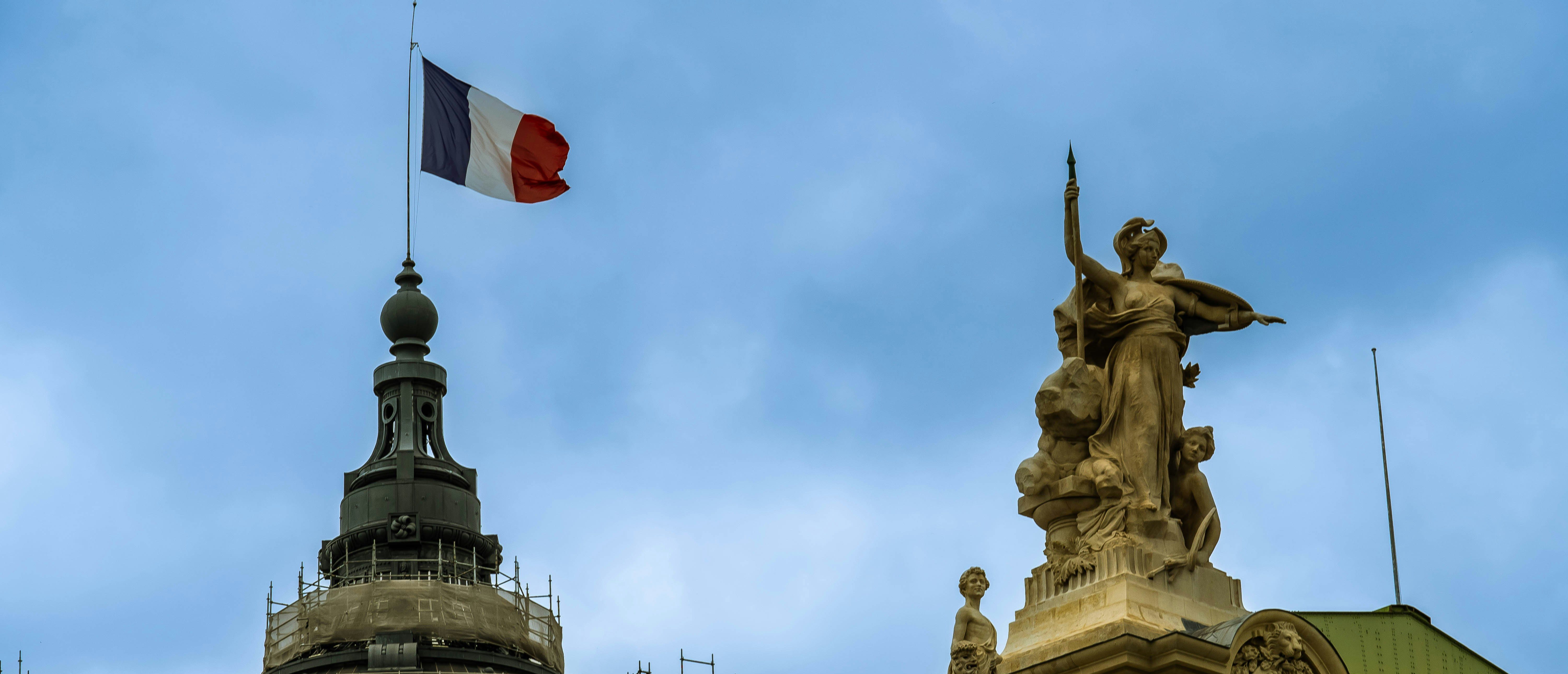Foreign Affairs
Macron’s Gamble To Keep Right-Wing Out Of Power Just Set France’s Government On Fire

Pourya Gohari/Unsplash
French President Emmanuel Macron’s government survived the country’s elections and staved off a right-wing wave on Sunday, but is now facing new problems from the left and months of potential political toil.
Macron hurriedly assembled a coalition of different parties ahead of Sunday’s parliamentary elections in order to prevent the right-wing National Rally party from seizing an absolute majority and essentially taking a large bulk of control over France’s government. The plan only partially worked, as no party won enough seats to take the majority, creating a split parliament made up of mostly left-wing parties that pose a threat to Macron’s government, according to Politico EU and The Washington Post.
“[Macron] was able to keep the far-right from first place, but they’ve increased their seat share and now he has to deal with this unruly left and unruly right,” Tina Fordham, founder of Fordham Global Insight, told CNBC News on Monday. “In terms of his legacy, he will be in for a real political fight.”
The National Rally won 141 of the 577 seats in the National Assembly on Sunday, while Macron’s liberal bloc won 145 seats, according to Politico EU. The New Popular Front won a total of 174 seats — winning over the competition but falling short of the 289 seats needed for a majority.
This has created a hung parliament and the possibility of months of political gridlock in France, which could upset markets and France’s already suffering economy, according to CBS News.
“It’s not possible to govern France if you don’t have 240 to 250 lawmakers,” Sylvain Maillard, MP for Macron’s Renaissance party, told Politico EU. “I was president of the Renaissance group (Macron’s party) with a coalition of 250 members of parliament and it was already very complicated.”
Macron is facing another problem; his unlikely collaboration with the New Popular Front to defeat the National Rally increased the National Assembly’s share of left-wing parties, including the Socialist Party, the climate-focused Green Party, and the far-left Communist and Unbowed Parties, according to the Post. Macron has called far-left parties as dangerous as the right but forming an alliance with them could be necessary to create a majority in parliament and avoid country-wide political paralysis.
The New Popular Front wants to dramatically increase government spending and has promised to reverse some of Macron’s economic policies, including his reforms on pensions, according to The Guardian. Breaking from Macron’s immigration reform, the New Popular Front wants to increase immigration into France and ease asylum laws — despite the country already facing record illegal immigration levels, according to The New York Times and French outlet Le Monde.
On foreign policy, members of the New Popular Front have demanded an immediate ceasefire in the Israel-Hamas war and the full recognition of a Palestinian state, although there are some divisions among members as to whether Israel has committed a “genocide” in Gaza, according to the Guardian and The Associated Press.
Jean-Luc Mélenchon, head of the Unbowed Party and a popular figure in the New Popular Front, called on Macron Sunday to form an alliance so that a new government could be created.
“The president must bow and admit this defeat without trying to circumvent it,” Mélenchon said on Sunday, according to the Post. “No subterfuge, arrangement or combination would be acceptable” to prevent the New Popular Front from power, he said.
But Macron has particular issues with the Unbowed party and his government previously flat-out refused to work with Mélenchon due to his party’s far-left policies, according to Politico EU and the Post. Macron has been highly critical of the Unbowed party’s anti-Israel remarks and has accused the party of promoting hate against Jewish people, according to The Wall Street Journal.
A new government also means a new prime minister, the second most powerful position in France, could be appointed; one would have already been selected had any party seized an absolute majority, but given the circumstances, it’s unclear who’s next in line. The current French Prime Minister, Gabriel Attal, handed his resignation to Macron on Monday, but Macron rejected it, telling him to stay in power to reassure the public that France’s government is stable, according to The Guardian.
Ultimately, the current chaos in French politics is the result of Macron’s own actions; he called for the sudden elections last month after the National Rally took first place in a round of European Union parliamentary elections in June, according to the Times.
Macron’s gamble “didn’t pay off,” Armin Steinbach, a professor of EU Law and economics at HEC Paris, told CNBC on Monday. “What [Macron] wanted to achieve was clarity, clarification on support for his government, and in that he failed.”
(Featured Image Media Credit: Pourya Gohari/Unsplash)
All content created by the Daily Caller News Foundation, an independent and nonpartisan newswire service, is available without charge to any legitimate news publisher that can provide a large audience. All republished articles must include our logo, our reporter’s byline and their DCNF affiliation. For any questions about our guidelines or partnering with us, please contact [email protected].

